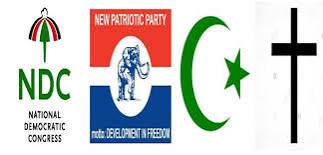The Political Landscape of Ghana: Analyzing the NPP and NDC Ahead of the 2024 Elections
Ghana, known for its stable democracy in West Africa, features a vibrant political landscape dominated by two main parties: the New Patriotic Party (NPP) and the National Democratic Congress (NDC). As the country gears up for the 2024 general elections, understanding the strengths and challenges of these parties is crucial in predicting the potential outcome.
#### The New Patriotic Party (NPP)
Founded in 1992, the NPP is a center-right political party that advocates for free-market principles, economic liberalization, and individual freedoms. Historically, the party has positioned itself as a champion of private enterprise and economic growth, appealing to the business community and urban voters.
In the 2016 general elections, the NPP, under the leadership of Nana Addo Dankwa Akufo-Addo, secured a decisive victory, marking a shift in power after eight years of NDC governance. The party’s focus on job creation, infrastructure development, and education reform resonated with many Ghanaians. Notably, initiatives like the Free Senior High School program garnered significant public support.
However, the NPP's tenure has not been without challenges. The economy faced difficulties, particularly exacerbated by the COVID-19 pandemic, leading to rising inflation and public debt. Additionally, allegations of corruption and mismanagement have marred the party’s image. As the 2024 elections approach, the NPP will need to address these economic concerns and restore public confidence.
#### The National Democratic Congress (NDC)
The NDC, established in the same year as the NPP, represents a center-left ideology. Historically linked to the country's first president, Jerry John Rawlings, the party advocates for social justice, public welfare programs, and state intervention in the economy. The NDC has traditionally drawn support from rural areas, lower-income citizens, and trade unions.
After losing power in 2016, the NDC focused on rebuilding and strategizing for the future. In the 2020 elections, the party, led by former president John Mahama, aimed to capitalize on public discontent with the NPP's handling of the economy. Although the NDC lost again, it managed to secure a substantial number of parliamentary seats, highlighting a resilient base of support.
In recent months, the NDC has emphasized issues like youth unemployment, healthcare, and economic management. The party’s ability to connect with voters on these pressing issues will be vital in the lead-up to the 2024 elections.
#### Current Political Climate and Prospects for 2024
As Ghana approaches the 2024 elections, several factors will influence the electoral landscape. Economic challenges, such as high inflation rates and public dissatisfaction with living conditions, have become central to political discourse. The youth, who represent a significant portion of the electorate, are increasingly vocal about their needs and expectations.
Both parties have started their campaigns early, highlighting their respective achievements and outlining their future visions for the country. The NPP is likely to emphasize its infrastructural projects and social interventions, while the NDC will focus on critiquing the current administration’s economic policies and presenting alternatives.
#### Which Party Has a Better Chance in 2024?
Determining which party has a greater chance of winning the 2024 general elections requires an analysis of current public sentiment and party strategies. The NDC’s recent gains in parliamentary representation and its ability to resonate with economic frustrations could position it favorably. Additionally, if the party successfully mobilizes younger voters and addresses their concerns, it may gain an edge.
Conversely, the NPP has the advantage of incumbency, allowing it to leverage state resources and maintain visibility through governance. If it can effectively communicate its achievements and reassure the electorate about economic recovery plans, it could retain power.
Polls and public sentiment leading up to the elections will play a crucial role in shaping the narrative. Factors such as voter turnout, campaign effectiveness, and grassroots mobilization efforts will ultimately influence the election's outcome.
#### Conclusion
The 2024 general elections in Ghana promise to be a closely contested affair between the NPP and NDC. Each party has distinct strengths and challenges, and their ability to connect with voters on pressing issues will be crucial. As Ghanaians weigh their options, the emphasis on economic stability and effective governance will likely dictate their choices at the ballot box. The coming months will be pivotal, as both parties refine their strategies and engage with the electorate in this democratic process.


